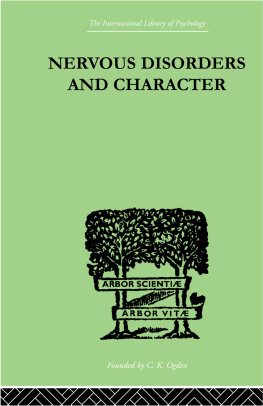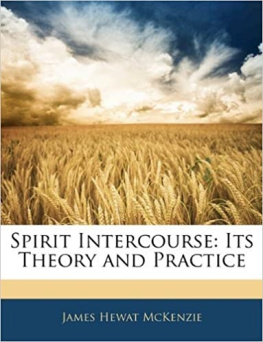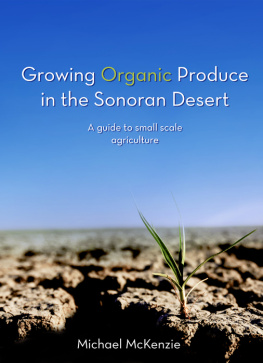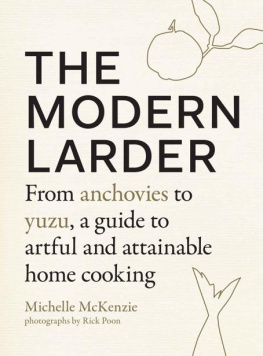McKenzie - GST - A Practical Guide
Here you can read online McKenzie - GST - A Practical Guide full text of the book (entire story) in english for free. Download pdf and epub, get meaning, cover and reviews about this ebook. year: 2008, publisher: CCH New Zealand Limited, genre: Politics. Description of the work, (preface) as well as reviews are available. Best literature library LitArk.com created for fans of good reading and offers a wide selection of genres:
Romance novel
Science fiction
Adventure
Detective
Science
History
Home and family
Prose
Art
Politics
Computer
Non-fiction
Religion
Business
Children
Humor
Choose a favorite category and find really read worthwhile books. Enjoy immersion in the world of imagination, feel the emotions of the characters or learn something new for yourself, make an fascinating discovery.
GST - A Practical Guide: summary, description and annotation
We offer to read an annotation, description, summary or preface (depends on what the author of the book "GST - A Practical Guide" wrote himself). If you haven't found the necessary information about the book — write in the comments, we will try to find it.
GST - A Practical Guide — read online for free the complete book (whole text) full work
Below is the text of the book, divided by pages. System saving the place of the last page read, allows you to conveniently read the book "GST - A Practical Guide" online for free, without having to search again every time where you left off. Put a bookmark, and you can go to the page where you finished reading at any time.
Font size:
Interval:
Bookmark:

GST : a practical guide / Alastair McKenzie. Ed. 9.
Previous ed.: 2008.
Includes index.
1. Value-added taxNew Zealand. I. Title.
343.93055dc 23
Published by CCH New Zealand Limited
First published 1986
This edition published April 2012
- Taxpayers sometimes took a different view of their GST liability than did the IRD. This resulted in the courts addressing a wide assortment of other issues. These ranged from whether a person actually had a GST liability (such as where a mortgagee effects a mortgagee sale) to the timing of a GST impost.
- Technological advances required a specific GST response. For example, the advent of the Internet led to an increase in New Zealanders importing services from overseas. GST rules were therefore introduced to tax imported services. Similarly, telecommunications advances resulted in overseas telecommunications companies providing services to people in New Zealand. Special GST provisions were then introduced to govern cross-border telecommunications services.
- Agitation for fairer GST rules by some industries resulted in changes. Most noticeable, financial services provided to business customers became more favourably treated (changing from GST-exempt to zero-rated).
- The 2011 legislative changes were effected to provide more functional rules (for input tax, input tax apportionment and adjustments) and to prevent abusive taxpayer behaviour (via zero-rating land transactions between GST-registered persons so as to prevent purchasers claiming input tax where the seller did not account for output tax due to the IRD).
- Other legislative changes resulted for diverse reasons. These included revenue generating actions (eg increasing the GST rate from 10% to 12.5% and then to 15%) and clarifying rules (including introducing new going concern criteria). The effect of several court decisions was legislatively reversed. Other changes comprised enforcement action (eg subjecting GST-registered persons to a robust penalty regime) and administrative initiatives (such as the IRD becoming able to issue binding rulings).
- Persons selling land sometimes took a different view from the purchasers of their right to add GST to the contract price. Such conflict generated substantial case law between contractual parties.
April 2012
- the author of numerous articles and conference papers on the tax
- the consultant editor of the CCH loose-leaf service, New Zealand Goods and Services Tax Guide, and
- a past columnist on GST for the Chartered Accountants Journal of New Zealand.
Font size:
Interval:
Bookmark:
Similar books «GST - A Practical Guide»
Look at similar books to GST - A Practical Guide. We have selected literature similar in name and meaning in the hope of providing readers with more options to find new, interesting, not yet read works.
Discussion, reviews of the book GST - A Practical Guide and just readers' own opinions. Leave your comments, write what you think about the work, its meaning or the main characters. Specify what exactly you liked and what you didn't like, and why you think so.















